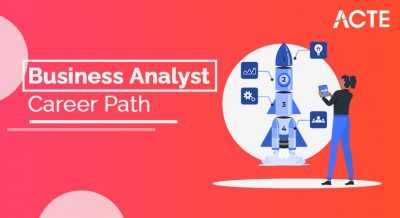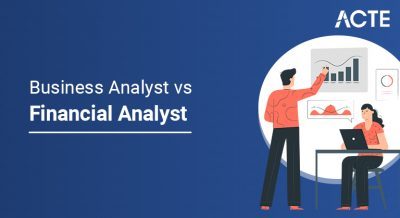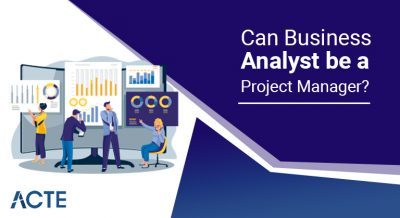
- What is Business Analytics?
- Why Pursue a Master’s in Business Analytics?
- Admission Criteria
- Curriculum Overview
- Tools and Platforms Taught
- Project and Internship Opportunities
- Differences: MBA vs MSc in Business Analytics
- Top Institutes in India
- Study Abroad Programs
- Job Roles and Employers
- Salary Range
- Conclusion
What is Business Analytics?
Business Analytics is an essential and evolving field that combines data analysis, statistical methods, and technological tools to help businesses make data-driven decisions. With the rise of big data, cloud computing, and artificial intelligence (AI), organizations increasingly depend on business analytics to improve decision-making, streamline operations, and gain competitive advantages. To build the skills needed to thrive in this data-driven landscape, explore Business Analyst Training a hands-on program designed to equip professionals with the tools, techniques, and real-world experience required to turn insights into strategic action. Business analysts use data to extract actionable insights, which contribute to better strategies and solutions.
Why Pursue a Master’s in Business Analytics?
A Master’s in Business Analytics (MSBA) is a premier choice of a career path for those professionals who want to master the data-driven environment. In other words, the degree program offers a wide range of technical skills and knowledge in business which makes the candidate well-equipped in strategic thinking and problem-solving. These transitions have been taking place quickly and organizations have developed in several ways. To understand how these skills translate into real-world impact, explore What Does a Business Analyst Do a guide that outlines the analyst’s role in bridging business goals with data-driven solutions, optimizing processes, and driving strategic transformation across industries. (a) They are heterogeneous, (b) they are data-dependent and (c) they are more than ever in need of analytics professionals. These facts have made the demand for people with analytics skills growing substantially and the job market for them huge. The MSBA program is very capable of inculcating advanced skills in graduates, which include but are not limited to data analysis, machine learning, and strategy, thus they become highly favored in the employment market. The programs mingle business knowledge and skills with technical know-how, thus the students get to confront business problems at a higher level and find solutions that help the organization to succeed. The specialization in business analytics is a gateway for different well-paid and attractive career opportunities where the holders of the degree find their niches in various sectors and have career stability because data-centric business strategies will be their strongholds.
Interested in Obtaining Your Business Analyst Certificate? View The Business Analyst Training Offered By ACTE Right Now!
Admission Criteria
Admission to a Master’s in Business Analytics program usually requires the following: a strong academic background in mathematics, statistics, or computer science; proficiency in analytical tools; and competitive test scores. To build these competencies and prepare for admission success, explore Learn Business Analytics a step-by-step guide that helps aspiring analysts master data interpretation, business strategy alignment, and the technical skills needed to thrive in top-tier analytics programs.
- Educational Background: A bachelor’s degree in a related field such as business, engineering, computer science, economics, or mathematics is typically required. Some universities may also accept applicants from other disciplines if they have demonstrated strong quantitative and analytical skills.
- Standardized Test Scores: Many universities require standardized test scores like GRE or GMAT. These tests assess analytical reasoning, verbal reasoning, and quantitative skills. However, some institutions may waive these requirements based on professional experience or academic performance.
- Work Experience: While not always mandatory, relevant work experience in data analysis, business, or technology is highly valued. Some programs prefer candidates with at least two years of professional experience.
- Statement of Purpose (SOP): Applicants are usually asked to submit an SOP explaining their motivation for pursuing the degree, career goals, and how the program aligns with their aspirations.
- Letters of Recommendation (LOR): Most programs require at least two letters of recommendation from professors or employers who can speak to the applicant’s academic abilities and professional qualifications.
- English Language Proficiency: For non-native English speakers, institutions typically require proof of English language proficiency through exams like TOEFL or IELTS.
- Statistics and Probability: Essential for understanding data patterns and making predictions, this course covers statistical models, hypothesis testing, and regression analysis.
- Data Mining: Students learn techniques for discovering patterns in large datasets, including clustering, classification, and association analysis.
- Machine Learning: This course introduces students to algorithms and models used for predictive analytics, such as decision trees, neural networks, and random forests.
- Data Visualization: Students are trained to use tools like Tableau, Power BI, and D3.js to represent data visually, making it easier to communicate insights to stakeholders.
- Big Data Analytics: This course focuses on handling and analyzing large volumes of data using distributed computing technologies like Hadoop and Spark.
- Business Intelligence: Students learn how to extract and analyze business data to support decision-making processes in various domains such as finance, marketing, and operations.
- Operations Research: Focused on optimization and decision analysis, this course covers techniques for improving operational efficiency.
- Strategic Management and Business Analytics: This integrates business strategy with analytics, teaching how to use data to drive strategic decisions and organizational growth.
- Capstone Project: Most programs offer a capstone project where students work on real-world business problems using data analytics tools and techniques learned during the program.
- Focuses on business strategy, leadership, and management alongside analytics.
- Emphasizes the development of soft skills such as teamwork, communication, and decision-making.
- Suitable for individuals looking to take on managerial or leadership roles in analytics.
- Primarily focuses on the technical and analytical aspects of data science and business analytics.
- Less emphasis on management and more on building technical expertise.
- Suitable for individuals looking to specialize in analytics roles such as data scientist, data analyst, or business analyst.
- Indian School of Business (ISB) – Hyderabad
- Indian Institute of Management (IIM) – Ahmedabad, Bangalore, and Calcutta
- Great Lakes Institute of Management – Chennai
- SP Jain Institute of Management & Research – Mumbai
- Tata Institute of Social Sciences (TISS) – Mumbai
- Narsee Monjee Institute of Management Studies (NMIMS) – Mumbai
- Institute of Management Technology (IMT) – Ghaziabad
- Shiv Nadar University – Greater Noida
- Data Scientist: Analyzing and interpreting complex datasets to provide actionable insights.
- Business Analyst: Identifying business needs and finding technical solutions using data.
- Data Analyst: Collecting, processing, and analyzing data to help businesses make informed decisions.
- Quantitative Analyst: Applying mathematical and statistical models to solve financial and risk management problems.
- Operations Analyst: Optimizing business operations using data analytics.
- Marketing Analyst: Using data to improve marketing strategies and decision-making.
- Financial Analyst: Analyzing financial data to inform business decisions.
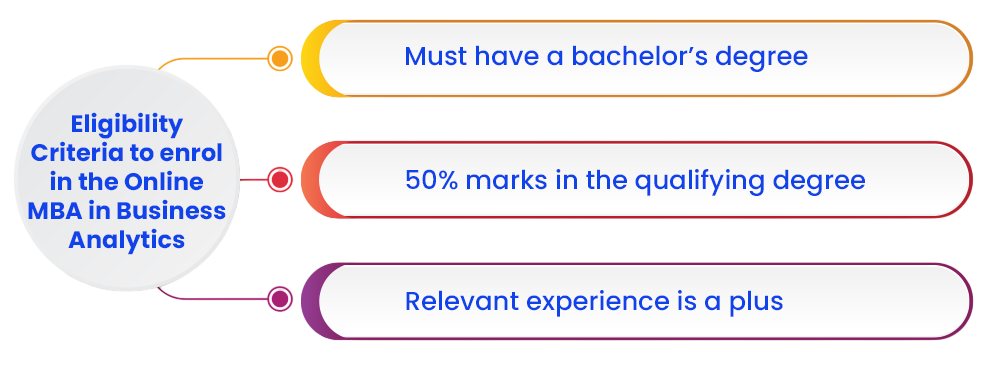
To Earn Your Business Analyst Certification, Gain Insights From Leading Data Science Experts And Advance Your Career With ACTE’s Business Analyst Training Today!
Curriculum Overview
A Master’s in Business Analytics typically includes the following core subjects: data mining, predictive modeling, statistical analysis, business intelligence, and data visualization. These subjects prepare students to bridge the gap between data and decision-making. To understand how these skills apply in real-world enterprise environments, explore Business Systems Analyst a guide that outlines how analysts integrate business needs with IT systems, optimize workflows, and ensure that technology solutions align with strategic goals.
Tools and Platforms Taught
Masters of Business Analytics programs equip students with a wide set of the latest technologies and platforms that are fundamentally necessary for data-driven decision-making in the current business environment. Such programs provide extensive training to students in many areas, which include the use of advanced data analysis and visualization tools like Excel, Tableau, Power BI, and QlikView that make it possible for professionals to convert complicated data into understandable insights. Moreover, students are made proficient in essential programming languages like R, Python, and SQL, thus giving them the ability to manipulate and analyze data accurately. To master these tools and languages in a structured learning environment, explore Business Analyst Training a comprehensive program designed to equip aspiring analysts with the technical and strategic skills needed to thrive in today’s data-driven industries. The study program further involves machine learning and artificial intelligence concepts through platforms such as TensorFlow, Keras, and Scikit-learn, hence allowing students to create predictive models and have advanced analytical skills. The courses also cover big data technologies, for example, Apache Hadoop and Apache Spark in addition to enterprise-level analytics platforms like SAS and IBM SPSS. The students are thus made fully competent in data management using both relational databases such as MySQL and PostgreSQL and NoSQL solutions like MongoDB. This all-inclusive strategy turns out to be the perfect training for them to handle the intricate world of business analytics of today with the right knowledge and skills.
Want to Pursue a Business Analyst Master’s Degree? Enroll For Business Analyst Master Program Training Course Today!
Project and Internship Opportunities
Most Master’s programs in Business Analytics provide students with hands-on experience through projects and internships. These opportunities allow students to apply their theoretical knowledge to real-world business challenges. During internships, students work with industry professionals and contribute to data-driven decision-making processes. Capstone projects, typically conducted in the final stages of the program, also enable students to demonstrate their skills. To translate these academic experiences into a successful career path, explore How to Become a Business Analyst a step-by-step guide that outlines the essential skills, certifications, and practical strategies needed to break into and thrive in the business analysis domain. These projects might involve working on analytics problems provided by companies, allowing students to create actionable insights from large datasets.
Go Through These Business Analyst Interview Questions and Answers to Excel in Your Upcoming Interview.
Differences: MBA vs MSc in Business Analytics
While both the MBA and MSc in Business Analytics focus on equipping students with valuable skills for the business world, the key differences lie in the emphasis of the programs: MBA programs prioritize leadership, strategic management, and organizational behavior, whereas MSc programs emphasize data analysis, technical proficiency, and research. To understand how these academic paths translate into operational impact, explore Business Process Analyst Do a guide that explains how analysts streamline workflows, align systems with business goals, and drive efficiency across departments.
MBA in Business Analytics:
MSc in Business Analytics:
Top Institutes in India
Some of the top institutes offering a Master’s in Business Analytics in India include:
Study Abroad Programs
Wherever professionals want to attend a highly-ranking Master’s program in Business Analytics, several top universities are ready to offer them the best opportunities across the different continents. Two of the first-rank institutions such as University of California, Berkeley and University of Texas, Austin in the United States are offering innovative curricula that perfectly integrate advanced analytics with strategic business insights. Moreover, the very reputable schools like London School of Economics in the UK, HEC Paris in France as well as National University of Singapore are providing far-reaching educational programs to their students to allow them to be equipped with the international perspectives and the most refined analytical skills. To complement these global academic experiences with practical expertise, explore Business Analysis Tools a curated guide to essential platforms that help analysts visualize data, model processes, and deliver actionable insights across diverse business environments. The Australian universities such as the University of Melbourne and University of Sydney are not far behind in this respect, and ESSEC Business School is going beyond to complete the worldwide network of Business Analytics education. These universities are the ultimate places to be for the professionals who are eager to develop their analytical skills and increase their career potential in an environment that is becoming more and more data-driven.
Job Roles and Employers
Graduates of Business Analytics programs can pursue a variety of roles, including:
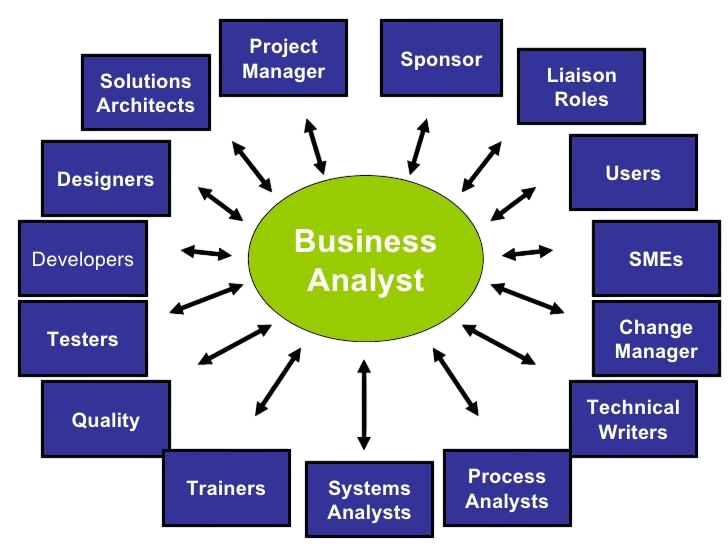
Salary Range
The salary range for Business Analytics professionals varies depending on location, experience, and job role. On average, fresh graduates in Business Analytics can expect to earn between ₹6 to ₹12 lakhs per annum in India. With experience, this can rise to ₹15 lakhs to ₹30 lakhs per annum for senior roles. In countries like the USA or the UK, salaries can be significantly higher, often ranging from $70,000 to $120,000 per year for entry-level positions, with senior professionals earning over $150,000 annually. The career growth in Business Analytics is promising. With organizations increasingly relying on data to drive decision-making, the demand for skilled professionals is expected to rise. To understand the financial rewards that come with this rising demand, explore Business Analyst Salary a detailed guide that breaks down compensation trends by experience level, industry, and location, helping aspiring analysts set realistic expectations and plan their career trajectory. The scope of growth extends across various sectors like finance, healthcare, e-commerce, and marketing. For professionals, the growth trajectory includes positions like Data Scientist, Analytics Manager, Director of Analytics, and Chief Data Officer (CDO). As businesses continue to embrace data-driven strategies, the opportunities for career advancement in Business Analytics are immense.
Conclusion
A Master’s in Business Analytics is an excellent choice for individuals looking to harness the power of data in shaping business decisions. To complement academic learning with hands-on industry preparation, explore Business Analyst Training a practical program that equips learners with real-world tools, domain expertise, and analytical techniques essential for translating data into strategic business outcomes. Whether you pursue it in India or abroad, the program provides the necessary skills to thrive in the ever-growing field of business analytics, offering a rewarding and future-proof career path.


